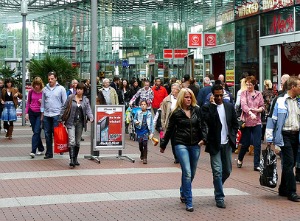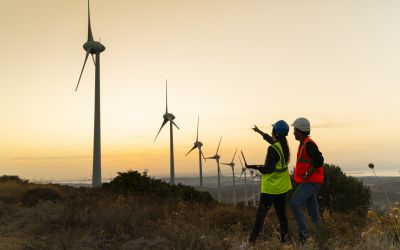Consumers the missing piece in the low-carbon puzzle
At the launch of the CBI’s new report on consumers and the low carbon economy, John Cridland, CBI Director General and Chris Huhne, Secretary for Energy and Climate Change promote a new dialogue, encouraging consumers, who account for around 70 per cent of emissions, to value energy efficiency in their products.

 Low carbon businesses still need to provide consumers with the latest things at a good price to stop them being the “Cinderella” of the low carbon economy, according to John Cridland, CBI Director General.
Low carbon businesses still need to provide consumers with the latest things at a good price to stop them being the “Cinderella” of the low carbon economy, according to John Cridland, CBI Director General.
With around 70 per cent of UK carbon emissions either directly or indirectly attributable to consumers, it has never been so important to get them engaged in the move to a low carbon economy.
However, a survey for the latest CBI report (9 March) ‘Buying into it, making the consumer case for low carbon’ found that only 15 per cent of consumers care about the environmental impact of their products.
John Cridland said: “there’s still one major piece of the puzzle that’s missing. There’s still one part of the market that isn’t working. That’s about the consumer. Our customers. Business has yet to make a compelling enough case to our customers about the benefits of the low-carbon economy.
“Unless we can get the public truly on board, then all the investment in new technology and all our low-carbon innovation will be for nothing.”
The survey that consisted of nearly 2000 interviews, found that 39 per cent of people would be more likely to purchase a product that could provide cheaper running costs. And when asked what factors shape consumers purchase of products including a washing machine, a car and a TV set, the top reasons were cost of product, quality and reliability, brand and size.
Energy Efficiency was fifth most used reason, while environmental impacts were one of the least used reasons.
Chris Huhne, Secretary for Energy and Climate Change, who spoke at the CBI launch of the report said: “People feel good about buying things that do good. But in the current environment, we can’t rely on the charitable impulse. We have to make it easier for people to make green choices. We have to get people thinking green at the critical decision points.
“That means making sure there are alternative products that consumers want and need. That they are signposted and supported by clear and consistent information. And that they are encouraged by the right blend of regulation, standards and incentives.”
The CBI believe clear information about the energy efficiency of a product, in a language consumers will relate to, and teamed with an incentive, for example using the latest technologies or financial incentives will be needed to drive consumer patterns, and businesses need to build up trust with consumers through their green credentials.
The CBI has also called for Government to join forces with industry, finding new ways of inspiring consumers to go green and developing clear, standardised labeling for low-carbon products, making it much easier.
Cridland said: “Let’s work across different industries on universal standards. Let’s make sure floor staff understand and are able to give the consumer their knowledge. Let’s use the latest technology like smart meters, or using our mobile phones as barcode readers to bring up the practical energy use of a product.
“And we need the Government working with us as well, because business can’t do this alone.”
Image: zoetnet | flickr






